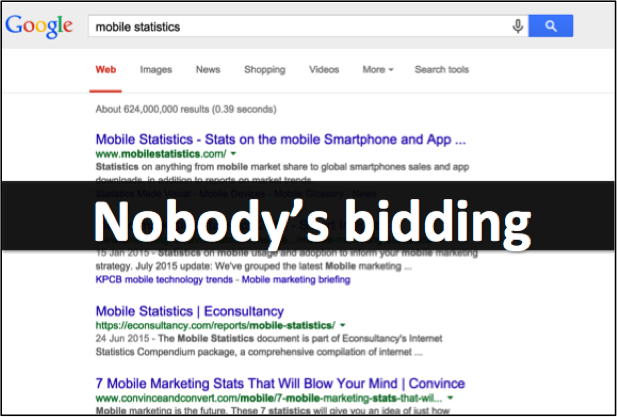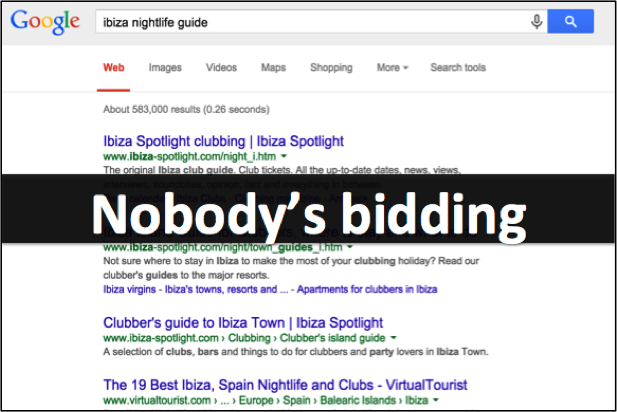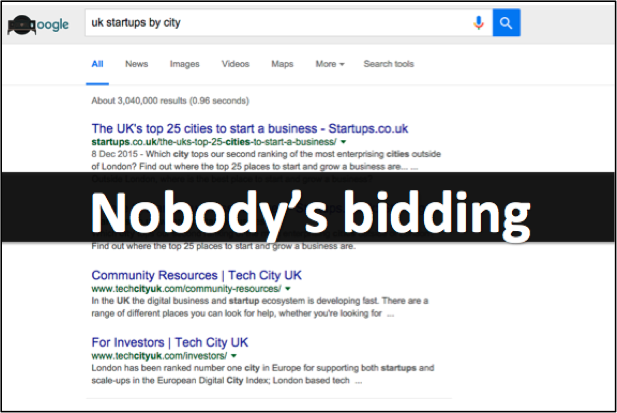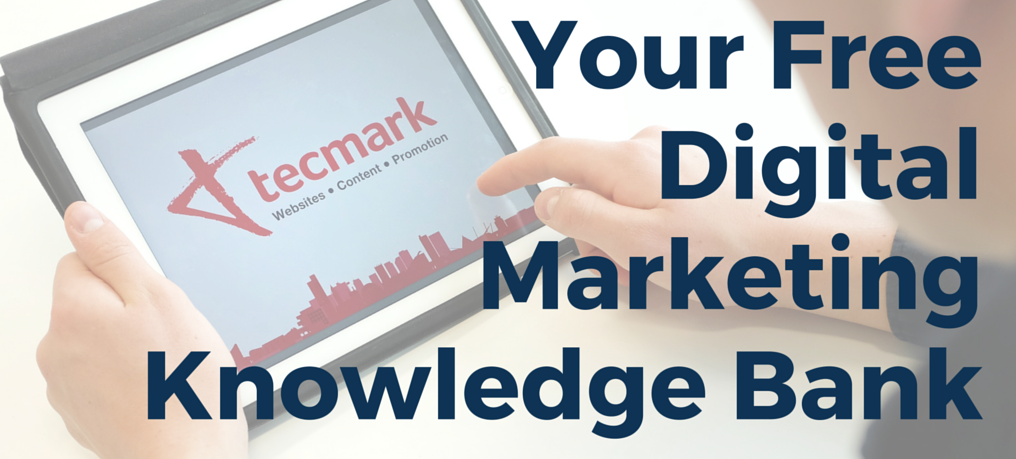PPC: the underused content promotion channel most SEOs miss

As the content landscape continues to swell, and there’s more competition for audience than ever, we’ve seen a surge in the use of platforms designed to help us promote content.
Outbrain, Zemanta, Taboola and Gravity are among the content discovery platforms doing the rounds. And if you haven’t yet used those, then I highly recommend a read of Wil Reynolds’ presentation on his $10k experiment with some of them.
Quite rightly, these and paid social channels are playing a part in content promotion strategies that simply have to diversify beyond “outreach”.
But one channel I hardly ever hear being referenced in the context of content promotion is Google Adwords (and, indeed, Bing and similar offerings).
Before I go on to talk about how Adwords in particular can be used in promoting content, there are two things to note:
- I am not a PPC expert. Like, nowhere near.
- Tecmark doesn’t do PPC for direct revenue generation in the traditional sense.
Adwords search ads and their role in content audience generation
We invest a lot of time ensuring our content performs well in organic search for relevant terms and long-tail variants.
For example, this quiz, which is designed to help people decide on a holiday destination, performs well in organic search for “where should I go on holiday?” and similar searches. This drives a huge number of relevant visits incredibly cost effectively.
Similarly, our smartphone usage study performs organically for a number of relevant queries, and this drives continued organic traffic looking for a source of data and, as time goes on, inbound links as well.
Most of us with backgrounds in SEO will be applying techniques like that to our content marketing efforts.
Adwords works on the same basis, except you can drive relevant traffic immediately for a cost as opposed to waiting to achieve visibility.
So, upon launch of a piece of content, you’ve a ready-made audience of people looking for something just like the thing you created.
That’s great for quick impact.
Isn’t Adwords ludicrously expensive?
Every single time I say to a PPC person, “Adwords is cheap…”, I get a look like this:

But there are a few things to note about Adwords that work well for those of us promoting content:
- The majority of advertisers are advertising products and services. Their campaigns are geared at direct revenue generation.
- It’s an auction-based platform. So, if nobody is bidding, then the price is lower.
- It’s very common for advertisers to negative match (tell Google they definitely don’t want to appear for) certain non-commercial keywords – things like “free”, or “research”, or “statistics”, for example.
If your objective is not direct revenue generation, and you’re looking for an audience, for people to discover you as a data source or asset to link to, or to reach indirect top-of-the-funnel/research-led potential customers, then your target queries are likely to be a lot less commercial in nature.
So, they could be a whole load cheaper.
Examples of queries we’ve driven traffic through
Some examples of queries we’ve used to drive traffic to content (with positive action outcomes – e.g., link, share, return visit, download, etc) are as follows:



Putting Adwords into action for content promotion
So, how do you go about taking advantage of Adwords to drive an audience?
1. Set some goals. There’s no point sending empty traffic without any objective or KPI against which to measure the quality of the traffic you’re sending.
2. Keyword research. Loads of it. You’ll want a long list of things that someone might search where your piece of content might be the answer they’re looking for. Use Google’s Keyword Planner as well as third party tools like answerthepublic.com. Consider:
a. What is your content about?
b. What does it do?
c. What problems might it solve?
3. From your research, identify the areas where you’ll have the least competition. Run some manual searches and look at the results. Don’t forget that it’s often the queries with non-commercial elements that yield the least competitive opportunities.
4. Go! Get the campaign set up, start running it, and measure continually.
Want to know even more?
Give your content marketing another boost by getting our four free digital marketing ebooks, three cheat sheets and our weekly content marketing newsletter.
You’ll immediately receive 126 pages of expert insight straight to your inbox.
Yes! Get My Four Free Ebooks Now…

Get 123 pages of expert advice straight to your inbox.
-
Apps (46)
Content Marketing (67)
Digital PR (1)
Integrated Marketing (3)
Multi Screen (12)
News (99)
PPC (2)
Search (120)
Tecmark (70)
Uncategorized (2)

About the Author


